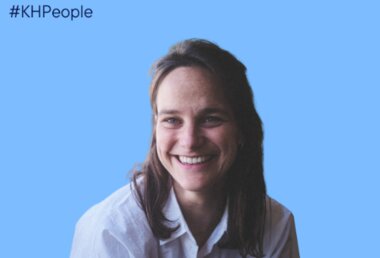9 May 2024
What is your role within King’s Health Partners?
I am a clinical lecturer, supported by a KHP Centre for Translational Medicine postdoctoral Clinical Research Excellence Fellowship. Alongside my specialist training in obstetrics and gynaecology, I am leading the EMPOWERED (Early Monitoring of POstnatal WomEn to REduce the risk of chronic kidney Disease) study, which is a mixed-methods observational feasibility study at two tertiary hospitals in Zambia and Sierra Leone.
This study builds upon my PhD project, the CRADLE-4 Trial, which evaluated the optimal timing of birth for women experiencing late preterm pre-eclampsia in low and middle income countries, and identified a lack of access to laboratory resources and barriers to longer-term postnatal support. Through this work, I aim to help develop a complex, community-led intervention, to reduce the risk of cardiovascular and kidney disease in women with hypertension in pregnancy living in low- and middle-income countries.
What do you enjoy most about your role?
I love having the opportunity to work with brilliant individuals from all over the world, and across different professions. For example, I work with a fantastic team of research midwives, who work tirelessly to support women in their communities. I also love being able to combine both academic and clinical work - working clinically enables me to understand what needs to improve, and develop new questions; having the time to pursue research and generate new evidence enables me to try and answer some of those questions, and impact positively upon health outcomes.
What inspired you to get into this work?
Eight hundred women die every day due to causes related to pregnancy and childbirth, and 95% of these deaths occur in low- and middle income countries. Hypertensive disorders, including pre-eclampsia, are the second leading cause of maternal death globally.
We also know that pre-eclampsia is one of the leading causes of pregnancy-associated acute kidney injury, and is associated with an increased risk of developing chronic kidney disease (CKD) and end-stage kidney disease; there are nearly twice as many women of reproductive age in low -income countries living with CKD compared with high income countries. To me, these inequalities are unacceptable.
So, understanding what we can do about them, is what inspires me to bring about change, and I believe that research is one of the most valuable tools we have to improve our clinical care, and ultimately to save lives.
What are the benefits of working in partnership?
We can learn so much from working across different contexts. The majority of my research takes place in resource-limited settings, across different cultures. Understanding the needs of a particular community, through qualitative research, and community engagement, is so important, alongside developing low-cost, novel solutions to facilitate earlier detection and diagnosis of disease.
This creates huge opportunity for shared learning and innovation, with many of these principles equally applicable within our community here in south London.
What would be your career top tips?
No career journey is a straight-line - and many of the most rewarding journeys are a zigzag! So my top tip would be to embrace the zigzags, and don't be afraid to step off the expected path. People often say that it takes a village to raise a child. The same could be said for a researcher!
My other top tip would be to find the right village for you. I am incredibly grateful for the support I have received from my supervisors, and peers, so I think that surrounding yourself with people you can learn from and who inspire you is really important.





